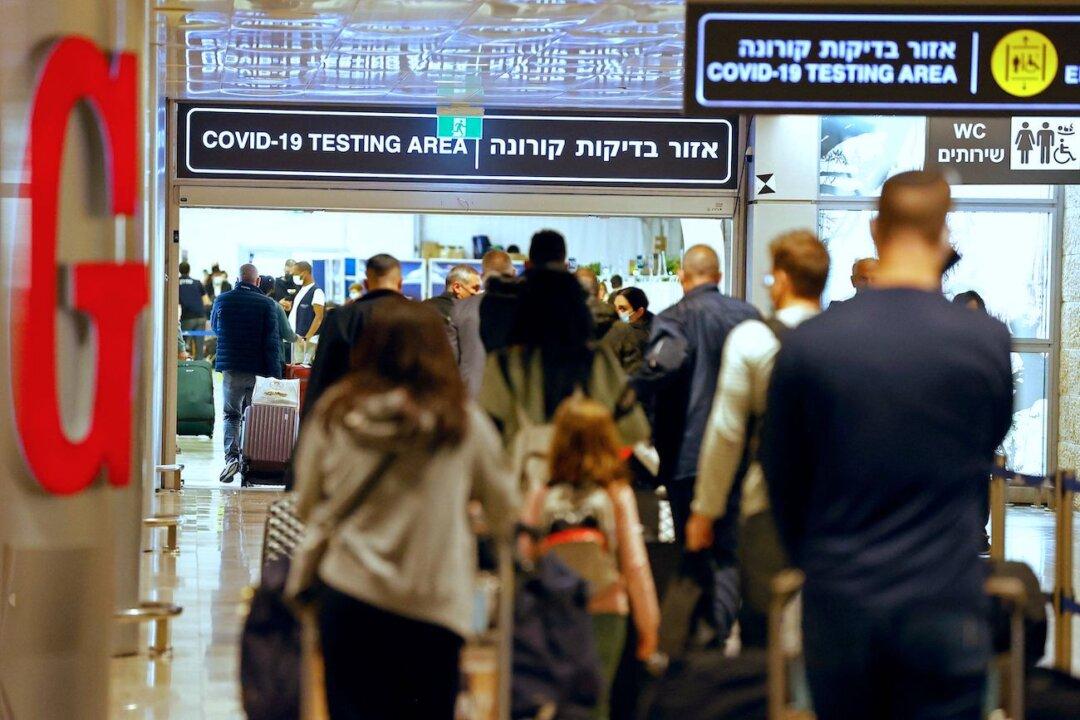Israel on Saturday unveiled new plans to ban all foreigners into the country, a world-first in efforts to curb the spread of the newly detected COVID-19 variant called Omicron.
The nation has also revealed plans to use counter-terrorism phone-tracking technology to surveil the new variant’s spread.




